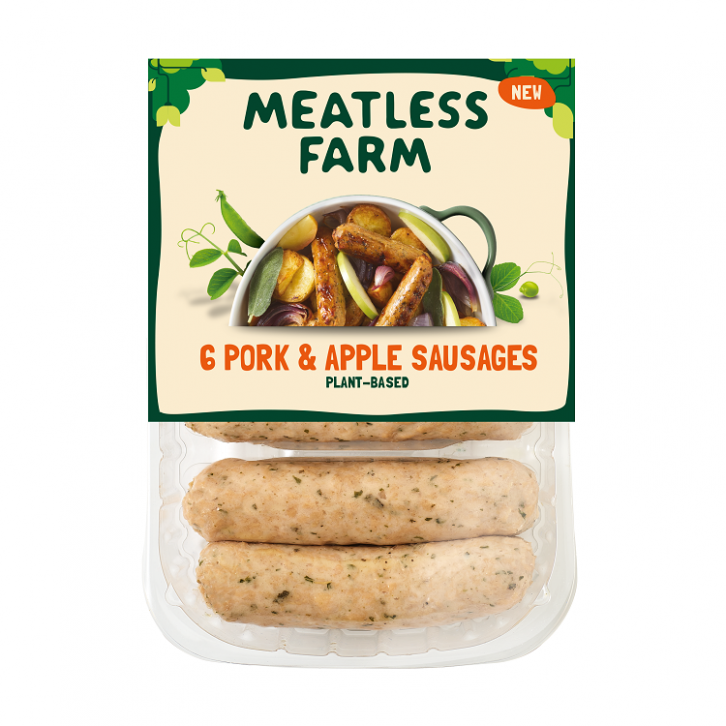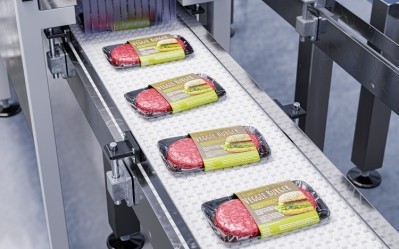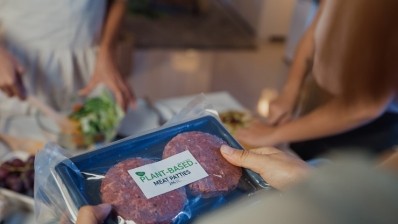From ‘pandemic peaks’ to sales slumps: Grasping the rollercoaster of plant-based meat consumption
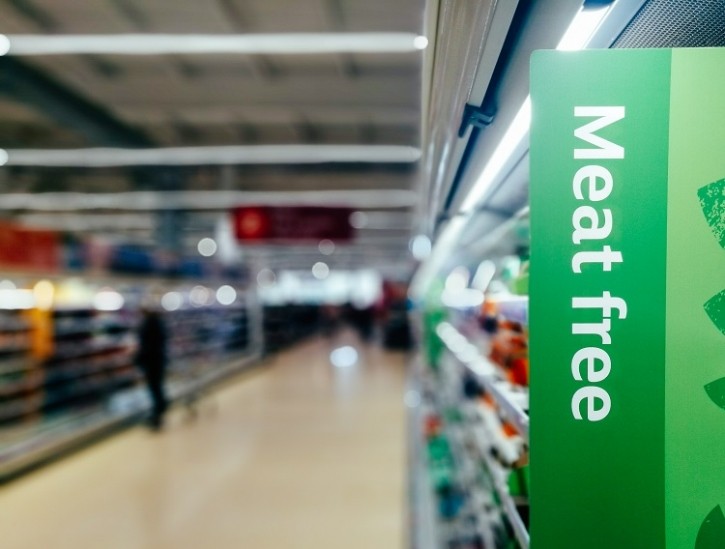
The plant-based meat category has soared in recent years and was predicted to continue on its trajectory. In 2021, fellow William Reed publication The Grocer estimated the meat-free category to be worth £607.3m in the UK alone, but both value and volume have since declined.
Globally, signs of a plant-based slowdown have become apparent in a more public fashion. Just last month, it was revealed that revenue for US plant-based meat pioneer Beyond Meat had fallen more than 30%.
What’s behind plant-based meat’s decline? And how can industry renew excitement for the category?
Dissecting the plant-based slowdown: crowding and consolidation
Not only is the upwards trajectory of plant-based meat faltering, but the sector is crowded. Both these factors are proving challenging for plant-based meat makers, according to financial services company Rabobank.
Up until the last 18-24 months, the market for plant-based meat alternative products grew double digits and market growth projections for the next decades ‘could not have been more optimistic’, senior consumer food analyst Sebastiaan Schreijen told FoodNavigator, ‘but that’s now turned around’.
“Retail sales of plant-based meat alternatives have dropped from their pandemic peaks and the category is now crowded.”
And the proof is in the pudding (or plant-based burger). In the UK, manufacturer of meat-free products Plant & Bean recently filed for administration, as did Meatless Farm. In the US, plant-based frozen meal brand Tattooed Chef has filed for bankruptcy.
“We’ve seen many producers and brand players reporting sale slumps, reducing their portfolios, pulling out of markets, or, in the worst-case scenario, simply turning off the lights,” said Schreijen, who also suggested manufacturers are not the only ones to have struggled in the category.
“Food retailers have not been able to crack the code on how to make a success of the meat alternatives shelf either.”
It’s obvious that the performance of the plant-based meat sector ‘significantly’ contrasts with earlier market forecasts, and Rabobank suspects these ‘inflated expectations’ were fuelled by new players with heavy funding, lots of marketing, appealing advertising, buzzy media and celebrity backers.
That the plant-based meat category is crowded is a view shared by mycoprotein major Quorn Foods, which makes meat-free versions of nuggets, mince and escalopes, amongst others . Having first launched in 1985, the brand believes that being recognised and trusted puts it in a better position than the ‘many brands and products coming and going in recent times’.
The more general slowdown of the plant-based meat sector is linked to inflationary pressures, which have significantly changed shopping behaviour, Gill Riley, consumer director at Quorn Foods, told this publication.
But while consumers are ‘tightening their belts and cutting down on spending’, the slowdown comes against a backdrop of ‘many years’ of strong growth, Riley stressed.
“There is still a steady and sustained interest in eating meat free. The key drivers of health, sustainability, animal welfare and taste continue to play a key role in everyday shopping decisions, but affordability and value are now front of mind.
“We hope to see economic pressures continue to ease and, as we do, we expect the key drivers to remain prevalent.”
For plant-based meat brand Vivera, owned by Brazilian meat giant JBS, the term ‘slowdown’ is not so fitting as ‘period of consolidation’. Indeed, industry has observed an uptick in consolidation: Livekindly Collective is continuing to grow its plant-based portfolio with the acquisition of Alpha Foods, and after Meatless Farm filed for administration, it was picked up by Vegan Fried Chick*n (VFC).
“The meat free category in the UK is experiencing a period of consolidation, but we think that this is largely to be expected after the huge levels of growth that the category has enjoyed in recent years,” Simon Colthorpe, country manager UK at Vivera told FoodNavigator.
“The good news is there continues to be significant innovation within the category, and a lot of choice for consumers – meaning that in our view, the future is bright for strong brands like Vivera who have strong R&D and manufacturing capabilities, and the ability to continue to push the boundaries when it comes to taste and innovation.”
Does blame rest solely with the cost-of-living crisis?
For some industry experts, plant-based meat’s waning growth can be linked directly to the cost-of-living crisis. Consumers often have the perception that plant-based meat products are premium offerings, which in the current economic climate, could result in reduced sales.
In the UK, where consumers are facing financial challenges amid increased costs of living, most sectors are feeling the impact, according to Quorn. These continuing pressures are contributing to a ‘turbulent’ consumer environment, with ‘many’ people cutting spend and changing their usual shopping habits.
Quorn is aware that value for money has become an even more crucial purchase driver, and is responding with initiatives aimed at making meat-free products more accessible. “Our bigger frozen bags recently underwent a packaging update, highlighting the ‘big bag, great value’ messaging and piece count, for easier meal planning that helps budgets stretch further, said consumer director Riley.
Vivera, which makes plant-based alternatives of meat classics such as drumsticks, beef strips, and steak, agrees that with recent cost of living pressures, consumers have been buying less regularly or perhaps in some cases leaving the category. But ultimately, plant-based meat consumption is primarily driven by taste and affordability, said the brand’s UK country manager.
![QF0002_Quorn_NPD_Vegan_Sausage_Rolls_Pack_4-3[1]](/var/wrbm_gb_food_pharma/storage/images/_aliases/wrbm_large/media/images/qf0002_quorn_npd_vegan_sausage_rolls_pack_4-3-1/16730816-1-eng-GB/QF0002_Quorn_NPD_Vegan_Sausage_Rolls_Pack_4-3-1.jpg)
When asked to pick one primary driver of the plant-based slowdown, Rabobank could not settle on a single factor. “It’s not just one thing that is causing today’s slowdown. Surely, the cost-of-living crisis has been a catalyst for the slowdown of consumer demand for plant-based meat products, as consumers feel the pressure of the overall food price inflation of their wallets,” said Schreijen.
But consumers are also starting to see that the meat alternative category might not actually be ‘all it’s hyped up to be’, suggested Rabobank consumer foods analyst JP Frossard. “For starters, there is growing awareness among consumers (and media) that ultra processed food (UPF) may be detrimental for health. That conflicts with the perception that meat alternatives are better-for-you products.”
According to Frossard, the ‘main culprit’ may well be product quality, and specifically taste.
“Driven by the growth of the market and food retailers’ push for lower prices, not all products that hit the shelf were as tasty. Inconsistent quality leads to consumer disappointment and that may well explain why repeat purchases were lacking.”
Renewing excitement in the sector: what’s the solution?
Which leads up to the big question: What can industry do to renew excitement in the category? If, as Rabobank suggests, quality has not been up to scratch, what steps can brands take to meet consumer expectations for taste and texture?
In a nutshell, industry needs to go back to the drawing board, according to Rabobank’s Schreijien. The senior consumer food analyst has faith the main drivers behind choosing plant-based products remain strong (from health to sustainability, animal welfare and processed food concerns), suggesting that the market opportunity for plant-based meat alternatives have not diminished.
“But meat alternative producers will need to work harder to accommodate consumers’ expectations.”
Schreijien’s colleague Frossard wonders whether plant-based meat makers have got their image and marketing communications right. With most plant-based meat alternatives closely mimicking the real thing, brands have removed ‘most of the plant’s physical components and nutrients’, we were told.
“The current plant-based meat products on the market are essentially only plant-based by name – this needs addressing. Plant-based players will benefit from talking more about the positive attributes of plants and carrying that through to the final products that they put on shelves.”
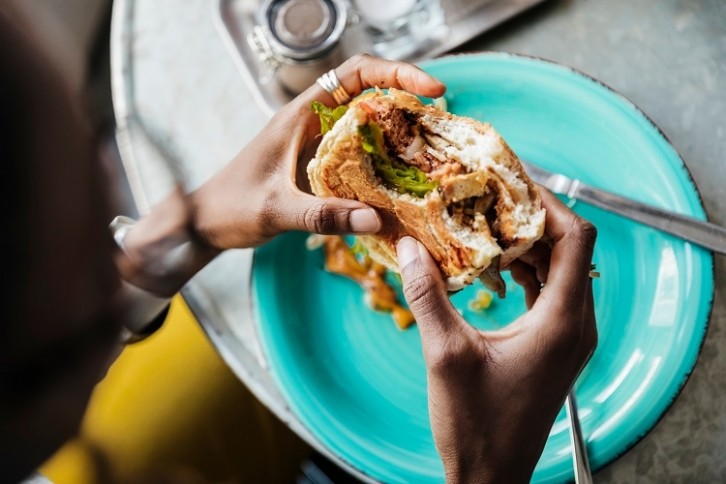
For Vivera, the solution lies in innovation. There remains a ‘real need’ for brands to continue to innovate, and bring to market great tasting, affordable meat brands that help people feel good about their choice to eat less meat, country manager Colthorpe told this publication.
“We believe that innovation is key to bringing more people into the category and keeping those already there.
“Innovation is also about taste of course, but more than this it is about bringing tasty affordable products that meet the variety of different needs and occasions that are currently served by meat.”
Quorn expects the category to recharge, rebuild and ‘head back towards buoyant growth’. “The category has experienced a huge wave of new product innovation over the last couple of year and this has driven interest and awareness, although it hasn’t always kept shoppers coming back,” said Riley.
In the meantime, it’s crucial for brands to continue investing in long term growth, while also responding to the changing needs of the consumer in the short term, we were told.
“Consumer trends and barriers may change but the fundamental drivers of a category and the brand’s role within that will always be relevant, as long as brands continue to understand out current and future consumers.”
